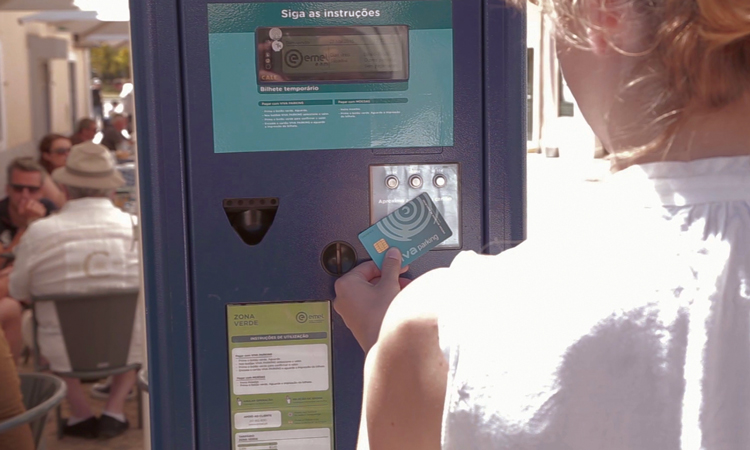Calypso technology: exciting evolutions and developments to come
- Like
- Digg
- Del
- Tumblr
- VKontakte
- Buffer
- Love This
- Odnoklassniki
- Meneame
- Blogger
- Amazon
- Yahoo Mail
- Gmail
- AOL
- Newsvine
- HackerNews
- Evernote
- MySpace
- Mail.ru
- Viadeo
- Line
- Comments
- Yummly
- SMS
- Viber
- Telegram
- Subscribe
- Skype
- Facebook Messenger
- Kakao
- LiveJournal
- Yammer
- Edgar
- Fintel
- Mix
- Instapaper
- Copy Link
Posted: 4 December 2015 | Philippe Vappereau - Calypso Networks Association | No comments yet
For more than two decades, Calypso technology has been a front-running initiator in the field of smart ticketing. But what does the future hold? Philippe Vappereau, Chairman of the Calypso Networks Association (CNA) tells us how CNA plans to meet the future expectations of its users.


Having been the first ones to promote high security for transactions, today we see that most technologies on the market have followed us in our approach or even made use of the concept. With more than 150,000 microprocessor cards deployed worldwide, and 450,000 terminals in more than 130 running schemes, Calypso is one of the smart technologies setting the scene around the globe.
Despite this solid position on the market, we are permanently keen to follow our initial path of being a proactive initiator and trendsetter within our ecosystem. With the emergence of new players and technological innovations in recent years, citizens’ lives are newly impacted. Connected users expect to be able to access services (purchase, real-time information, etc.) anytime, anywhere.
The technological switch brought up by moving away from the conventional native transport application to personalised on-demand services opens-up our understanding of the ‘traditional role’ to new services, new working tasks and a multitude of business opportunities. As one of the first in its class, Calypso has entered this new technological wave by developing a software application that can be downloaded onto Global Platform compliant media like Java cards and mobile media (NFC phones, USB sticks, etc.). This enables an independent transport application on multi-application platforms and consequently safeguards the interests of transport operators. However, transport applications will be personalised, they will allow their users easier seamless travelling through the interoperable use of media. Granting accessibility to all by guaranteeing social inclusion is an additional feature that makes these smart mobility services a key to a successful policy towards public transport users. Smart-media allow for new services to be rolled-out quickly whilst optimising infrastructure costs.
The baseline of current development is that urban transport is at the core of future mobility patterns. This means that successful urban transport needs to take into account expectations of citizens and offer them the services they want. The usage of public transport is no longer a single dedicated act, but an integrated part in a mobility chain. Now more than ever operators need to permanently offer the option to sell their services to attract potential clients. Only by becoming part of lifestyle services will public transport be able to successfully reshape customer relations and open up new revenue streams that are vital for delivering an efficient and attractive service to its users. This will enhance the image of public transport and allow an increase in public transport usage in the long-term. By the same token, customers want to be informed about the services they use and everything that relates to them. Nowadays, nobody accepts to be kept in the dark. Matching these expectations means that various services need to be integrated with smart ticketing such as Real-Time Information, guidance, events information etc. Internet 2.0 has started to educate users to perceive their environment this way, and urban transport needs to adapt to this new societal paradigm.
Based on these evolutions, CNA has launched a series of new initiatives to better match future expectations. We made an analysis on how Calypso could work on HCE bases by highlighting, in terms of security, the pros and cons of such an approach. Furthermore, we have started to explore how Calypso can work in an account-based ticketing configuration. Here we have a first running scheme in Strasbourg where the Calypso strength of highly secured front-end transactions is used to secure the back-office-based solution. We achieved substantial success in terms of our interoperability application Triangle 2 when the ‘Métropole Européenne de Lille’ (MEL), the transit authority of the urban community of Lille in France, together with BMC (Belgium Mobility Card) decided to improve the service they provide to their customers by offering easier access to their networks. The present fare integration existing between Mouscron in Belgium and Wattrelos in France will be extended to interoperability between Nord Pas de Calais and Belgium. This means that the transborder contracts of transport are registered in the Triangle application, whether in the Belgian MOBIB card or in the Nord Pas de Calais PassPass card: the customer uses only one card to travel from their country to the other. Furthermore, as Triangle is implemented throughout Belgium, it means that this service could be open on a wider scale – between Belgium and Nord Pas de Calais, for example, for people from Brussels travelling to Lille or vice versa.
Institutionally we have successfully incorporated the Smart Ticketing Alliance with our partners from Germany (VDV-ETS), UK (ITSO), France (AFIMB) and the UITP in May 2015. The core aim of the Alliance is to federate all relevant parties implicated in aspects of interoperability in a European framework to better coordinate their work. With regards to this, CNA has launched the service of certification of public transport media with Paycert in order to bring things forward.
Despite all these works in which CNA is actively taking part, we are currently reengineering the fundamentals of our association. In the years to come, our basic revenues that stem from licenses will come to a natural end of life cycle, so we have decided to extend our scope in the years to come. With our CNA 2020 initiative, we will switch to a full model based on the parameters of an Open Sources approach. This means a significant broadening of the perimeter of Calypso and the integration of new players into the association. With higher service orientation we expect to increase the competitiveness of Calypso, the value for its users and generate new streams of revenue. All this needs to be done in full coherence with our actual members and our initial Calypso philosophy. By proactively taking this challenge we expect to offer more dynamic possibilities of development of our technology and integrate new players into our ecosystem. We look forward to a new joint future with many exciting evolutions and developments.
Biography


Related topics
Infrastructure & Urban Planning, Ticketing & Payments
Issue
Issue 6 2015
Related organisations
Calypso Networks Association
Related people
Philippe Vappereau








